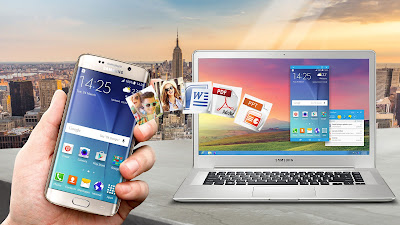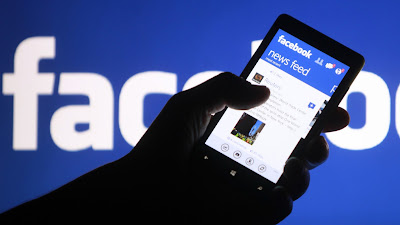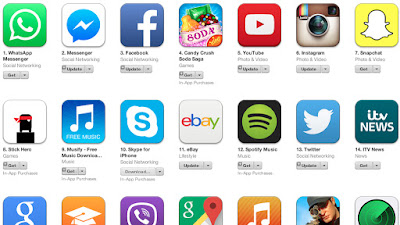‘Free’ has been replaced by ‘Get’ on Apple’s App Store. Photograph: PR
It’s the end of free apps for iOS! Well, sort of. Apple quietly made a design tweak to its App Store yesterday, replacing the “Free” button for apps that are free to download with “Get”.
So, no change to the actual price, but the new wording is one way of sidestepping the debate around “free” apps not actually being free if they use in-app purchases – an issue that regulators in various parts of the world have been looking into.
Now, freemium apps will have the new “Get” button, as well as a prominent “In-App Purchases” notification, to ensure that people know they’re downloading something that will, in some way, be hoping for some of their money at a later point.
Is “Get” a good choice of wording in this case? You might argue that it makes it harder to tell that an app is free to download, although iOS users will surely pick that up by noticing other apps still have prices on their download buttons.
The comments section is open for your thoughts on Apple’s change, and the rise of freemium apps in general.
What else is bubbling in the technology world this morning? Some links:
Senator Al Franken has some questions for Uber
Uber’s bad week just stepped up a notch: US senator Al Franken has written to its chief executive Travis Kalanick with some pointed questions about the company’s privacy policy, statements by senior executive Emil Michael about using private information to target journalists, and its “God View” tool for tracking users. “I would appreciate responses to these questions by December 15...”
Chrome now has 400m monthly active mobile users
Google has announced new stats for mobile usage of its Chrome web browser: 400 million monthly active users. That’s impressive growth given that it was on 300 million as recently as the company’s I/O conference in June.
DOJ: children will die due to Apple encryption
As arguments why technology companies shouldn’t introduce new encryption features go, this is pretty startling, from the US Department of Justice: “Mr. Cole offered the Apple team a gruesome prediction: At some future date, a child will die, and police will say they would have been able to rescue the child, or capture the killer, if only they could have looked inside a certain phone...”
Jolla tablet crowdfunding campaign is soaring
Finnish firm Jolla is pitching its tablet as “the world’s first crowdsourced tablet”, and there are plenty of people rushing to pledge their money for one. The company launched an Indiegogo crowdfunding campaign earlier this week with a target of $380k, and is already past $878k in pledges.
Firefox switches Google for Yahoo as search supplier
Mozilla has signed a five-year deal to make Yahoo the default search engine for its Firefox web browser in the US – a big win for the latter company, given the 100bn+ annual searches by Firefox users. Meanwhile, Yandex is now its default in Russia, although users can of course still switch to an alternative if they prefer.
Family makes $7k a month from Disney covers on YouTube
The Bagley family in Utah are proving quite the hit on YouTube with their cover versions of Disney songs: 86m views of their Do You Want To Build A Snowman? cover alone so far. Tubefilter notes that their income is more than $7k a month from an average of 18m views a month.
Barbie Computer Engineer book causes a stir
A book that sees Barbie turning computer engineer hasn’t gone down well. “Barbie is featured in the book as a stylishly pink-clad computer engineer that somehow breaks everything and doesn’t know how to code. She does draw puppies though...” Mattel has pulled it from Amazon and apologised.
Dive in below the line with your own link recommendations and comments on the stories above.
And, yes, Guardian Tech has switched to the new website design: if you’re having trouble finding the daily post, the Technology Blog tag homepage is the quickest route – the latest open thread should be at the top left every day.

















